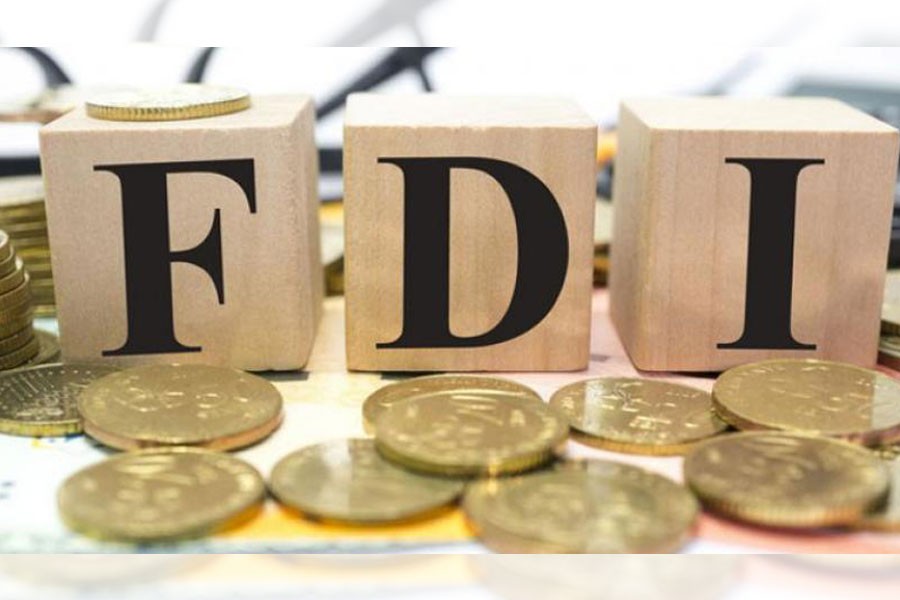Speakers on Sunday stressed congenial business climate, taxation reform and long-term policy support to attract more foreign direct investment (FDI).
They also called for addressing investors' grievances, greater coordination between agencies and changing the policymakers' mindset towards foreign investors.
The observations and suggestions were made at a seminar styled 'Investment Bangladesh-FDI Opportunities' on the sidelines of 'Destination Bangladesh' conference.
Dhaka Chamber of Commerce and Industry (DCCI) hosted the event at Bangabandhu International Conference Centre in the capital.
Bangladesh Investment Development Authority executive chairman Kazi M Aminul Islam chaired the session.
Standard Chartered Bangladesh chief executive officer Naser Ezaz Bijoy made a presentation on investment prospects and potential in Bangladesh.
Citing Bangladesh as an investment destination, he said power, chemical and pharmaceuticals, food, leather and telecom are the top five sectors where net FDI flow is increasing in 2018.
Mr Bijoy, however, outlined some areas that need to be improved, including power for industrialisation, bottlenecks in communications and logistic infrastructure and reforms of cumbersome tax framework.
Labour market efficiency, institutional framework, capacity for innovation and procedural complexities in starting and running business also need development.
"Effective one-stop service model can improve ease of doing business and bring higher investment," he said.
Mr Bijoy recommended improvement in turnaround time, greater coordination between agencies and line ministries, re-skilling and re-motivation, resolving grievances and building an investment marketplace.
Shehzad Munim, president of Foreign Investors' Chamber of Commerce and Industry, said Myanmar is successful in attracting FDI than Bangladesh.
He suggested raising awareness of the country's potential as an investment destination and improving advocacy in this regard to attract more FDI.
Companies should be encouraged with offering policy incentive to be listed with the country's stock market rather forcing them for doing so, Mr Munim added.
"Bangladesh is a land of opportunity, but how many years we have to wait to convert the opportunity in the form of return to our shareholders," said Mahtab Uddin Ahmed, managing director of Robi Axiata Limited.
"The typical mindset of our policymakers needs to be changed. To them, multinational companies only send money outside the country, they have big pockets and so charge as much as possible," he noted.
In the telecoms sector, there is allegation of high call charge, said Mr Ahmed, also the chief executive officer of Robi.
But he claimed that the voice rate is the lowest while tax is the third highest in Bangladesh.
Although there are lots of challenges, they are still hopeful, Mr Ahmed added.
KAM Majedur Rahman, managing director of Dhaka Stock Exchange Limited (DSE), termed small and medium enterprises (SMEs) a good chance for foreign investors.
The SMEs do not have any platform to raise their capital, he mentioned.
The DSE is ready to make a platform for SMEs, Mr Rahman told the event.
Meanwhile, BIDA chairman said although FDI is coming, it is less than expected.
To make Bangladesh an investment destination, the government is trying to do everything, including providing one-stop service, he added.
Mr Islam, however, said it needs to work on image development as the perceived risk is higher than the real ones.
"The way the risks are seen by the world is different," he noted.
Md Harunur Rashid, executive member of Bangladesh Economic Zones Authority (BEZA), said they have already finalised standard operation procedures for providing smooth services.
FDI is coming from different countries, including Japan, Malaysia and Australia, while local investors are also given land, he added.
"Only BEZA can provide hassle-free land to investors."
KM Rezaul Hasanat, managing director of Viyellatex Group, and Fuzhong Liu, director of international department at Shenzhen Stock Exchange, among others, also spoke.


